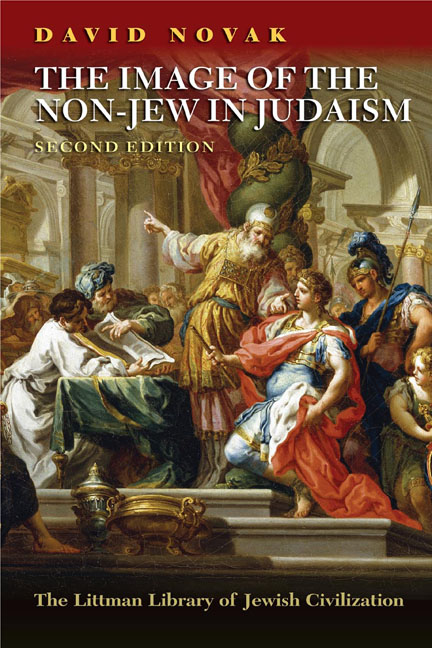Book contents
- Frontmatter
- Dedication
- Preface
- Acknowledgments
- Contents
- Chapter Summaries
- 1 The Origins of the Noahide Laws
- 2 The Law of Adjudication
- 3 The Law of Blasphemy
- 4 The Law of Idolatry
- 5 The Law of Homicide
- 6 The Law of Sexual Relations
- 7 The Law of Robbery
- 8 The Law of the Torn Limb
- 9 Aggadic Speculation
- 10 Maimonides’ Theory of Noahide Law
- 11 Albo's Theory of Noahide Law
- 12 Late Medieval Developments
- 13 Moses Mendelssohn and his School
- 14 Hermann Cohen and the Jewish Neo-Kantians
- 15 Conclusion
- Afterword
- List of Abbreviations
- Notes
- Bibliography
- Index
7 - The Law of Robbery
- Frontmatter
- Dedication
- Preface
- Acknowledgments
- Contents
- Chapter Summaries
- 1 The Origins of the Noahide Laws
- 2 The Law of Adjudication
- 3 The Law of Blasphemy
- 4 The Law of Idolatry
- 5 The Law of Homicide
- 6 The Law of Sexual Relations
- 7 The Law of Robbery
- 8 The Law of the Torn Limb
- 9 Aggadic Speculation
- 10 Maimonides’ Theory of Noahide Law
- 11 Albo's Theory of Noahide Law
- 12 Late Medieval Developments
- 13 Moses Mendelssohn and his School
- 14 Hermann Cohen and the Jewish Neo-Kantians
- 15 Conclusion
- Afterword
- List of Abbreviations
- Notes
- Bibliography
- Index
Summary
Introduction
The prohibition of robbery (ha-gezel) is the sixth Noahide law. In the rabbinic attempt to derive these laws from Gen. 2:16, this prohibition is found in the words, “from every tree of the garden you may surely eat, but from the tree of knowledge of good and evil you may not eat.” The transgression of the command was considered to be tantamount to robbing God. By extension, then, robbing humans was considered prohibited. On the level of plain meaning, this prohibition makes the most evident sense from the wording of the verse than the other prohibitions.
The prohibition of robbery requires the concept of property. If society is a human necessity, then most would agree that at the minimal level it functions as medium for economic exchange, of things between persons. There is division of labor, because exchange presupposes that different persons are related to different things in different ways. This relation of people to things is what we call property. Society prescribes the rules whereby these relations change.
The necessary prohibition of robbery, if there is to be a consistent systemof division of labor, is brought out with great cogency by Saadiah Gaon:
Theft was forbidden by [divine] Wisdom because, if it were permitted, some men would rely on stealing others’ wealth, and they would neither till the soil nor engage in any other occupation. And if all were to rely on this source of livelihood, even stealing would become impossible, with the disappearance of all property, there would be absolutely nothing in existence that might be stolen.
The Double Standard of Robbery
As noted previously, there are a number of distinctions between Jewish and Noahide law concerning robbery. We are dealing with four possible relations: a gentile robbing another gentile; a gentile robbing a Jew; a Jew robbing a gentile; and a Jew robbing another Jew.
In a baraita we learn that concerning robbery, whether stealing or robbing or taking awar-bride (yefat to'ar) or the like: (1) a gentile robbing a gentile; (2) a gentile robbing a Jew—this is prohibited (asur); (3) a Jew robbing a gentile—this is permitted (muttar).
- Type
- Chapter
- Information
- The Image of the Non-Jew in JudaismThe Idea of Noahide Law, pp. 127 - 134Publisher: Liverpool University PressPrint publication year: 2011

